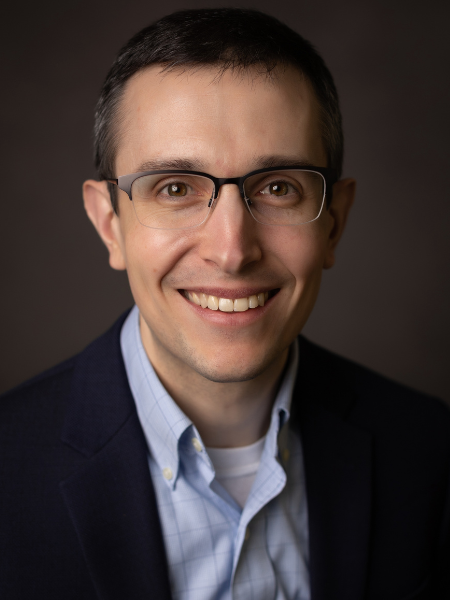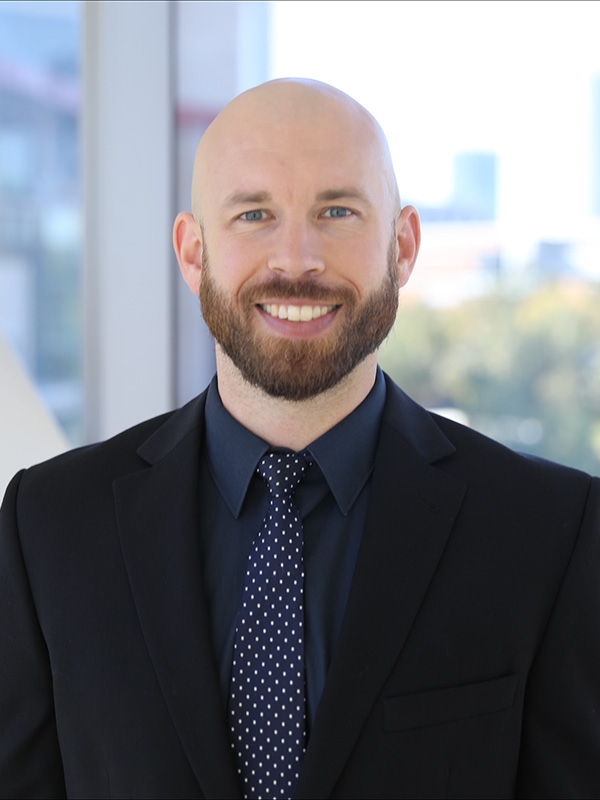OKLAHOMA CITY, OKLA. – The TSET Health Promotion Center at the University of Oklahoma Health Sciences is expanding its scope to address obesity and its health risk factors in Oklahoma. Four behavioral researchers with expertise in obesity, physical activity and nutrition are joining the program to conduct studies and develop innovative behavioral intervention strategies.
Research at the HPRC focuses on health risk factors that can be modified to decrease disease and death. In Oklahoma, nearly 40% of all adults are obese, and the state ranks fourth highest in the nation for the rate of obesity. About 11% of Oklahoma adults have diabetes, and 30.5% report being insufficiently active.
“The prevalence of obesity has increased at an alarming rate in Oklahoma and across the world,” said Michael Businelle, Ph.D., co-director of the HPRC, a program of OU Health Stephenson Cancer Center at OU Health Sciences. “This expansion will enable us to identify specific risk factors for obesity in Oklahomans and support the development of new methods to prevent and treat this condition.”
The expanded purpose of the HPRC is supported through funding from the Oklahoma Tobacco Settlement Endowment Trust and the National Institutes of Health awarded to the OU Health Stephenson Cancer Center. The researchers’ efforts will support the Oklahoma Obesity Prevention Plan, which was established in 2022 by the Oklahoma State Department of Health.
The four new HPRC researchers and their areas of expertise are:
Sarah Borengasser, Ph.D., has been funded by the National Institutes of Health for over 18 years for her research on obesity, physical activity and nutrition. She is passionate about mentoring the next generation of scientists and has created a career development curriculum to effectively present research findings to scientific and lay audiences using TED-talk style approaches. She will also serve as vice chair for research and training at OU Health Harold Hamm Diabetes Center.

Zachary C. Pope, Ph.D., a certified exercise physiologist with behavioral science expertise, completed a postdoctoral fellowship in cardiovascular disease epidemiology and prevention, funded by the National Heart Lung and Blood Institute. His work at the HPRC involves using smartwatches and smartphones to implement personalized health behavior change interventions. The aim is to improve cardiometabolic and psychosocial outcomes among cancer survivors, individuals with prediabetes or metabolic syndrome, and those battling addictions such as smoking. The research will prioritize people who live in rural and underserved communities with less access to gyms and nutritious foods.

Michael C. Robertson, Ph.D., MPH, researches the use of technology to deliver lifestyle interventions for sustained behavior change among older adults and people living with cancer or whose cancer is in remission. He develops techniques that are informed by psychotherapy to encourage self-motivation for physical activity. He recently completed a postdoctoral fellowship funded by the National Institute on Aging that provided advanced training in behavioral gerontology and the science and art of applying game design to health promotion.

Ashlea Braun, Ph.D., RD, researches the bidirectional relationship between food and behavior and leverages that information to design behavioral interventions. This includes an emphasis on dietary components that may influence behavior, such as dietary fiber and ultra-processed foods, combined with behavior change approaches, such as motivational interviewing, to support changes in diet.

About OU Health Stephenson Cancer Center
OU Health Stephenson Cancer Center is Oklahoma’s only National Cancer Institute-Designated Cancer Center. Stephenson Cancer Center is one of the nation’s elite centers, representing the top 2% of cancer centers in the country. It is the largest and most comprehensive oncology practice in the state, delivering patient-centered, multidisciplinary care for every type of cancer. As one of the nation’s leading research organizations, Stephenson Cancer Center uses the latest innovations to fight and eliminate cancer and is currently ranked No. 1 among all cancer centers in the nation for the number of patients participating in clinical trials sponsored by the NCI’s National Clinical Trials Network. For more information, visit stephensoncancercenter.org.
About the University of Oklahoma Health Sciences
The University of Oklahoma Health Sciences is one of the nation’s few academic health centers with all health professions colleges — Allied Health, Dentistry, Medicine, Nursing, Pharmacy, Public Health, Graduate Studies and School of Community Medicine. OU Health Sciences serves approximately 4,000 students in more than 70 undergraduate and graduate degree programs on campuses in Oklahoma City and Tulsa and is the academic and research partner of OU Health, the state’s only comprehensive academic health care system. OU Health Sciences is ranked 129 out of over 2,849 institutions in funding received from the National Institutes of Health, according to the Blue Ridge Institute for Medical Research. For more information, visit ouhsc.edu.
About the University of Oklahoma
Founded in 1890, the University of Oklahoma is a public research university located in Norman, Oklahoma. As the state’s flagship university, OU serves the educational, cultural, economic and health care needs of the state, region and nation. OU was named the state’s highest-ranking university in U.S. News & World Report’s most recent Best Colleges list. For more information about the university, visit ou.edu.
As students across Oklahoma head back to school, the Oklahoma Poison Center reminds parents, caregivers and teachers that many everyday school-related items can pose poisoning risks if not handled or stored properly.
Motolani Adedipe, Ph.D., associate professor in the Department of Family and Preventive Medicine at the University of Oklahoma Health Sciences Center, has been awarded a Fulbright U.S. Scholar award to South Korea through the U.S.-Korea Presidential STEM Initiative.
The latest advancement in laser technology has arrived at the University of Oklahoma College of Dentistry clinics, offering patients the most modern option for pain relief, bleeding control, bacteria removal and more.